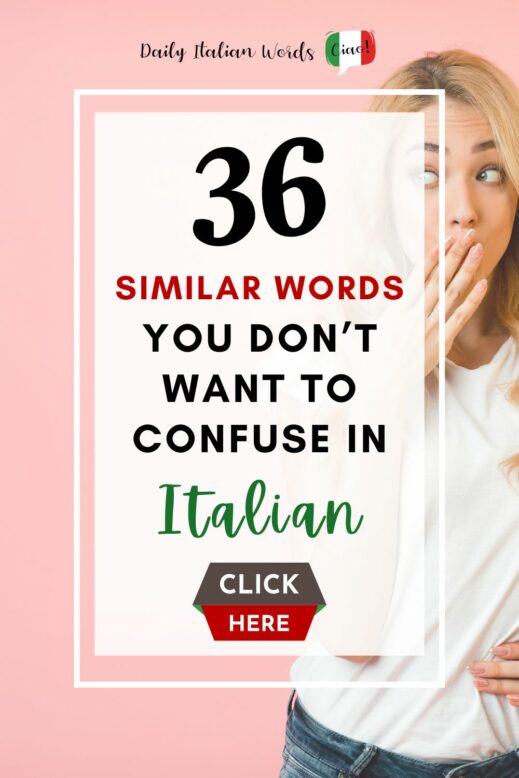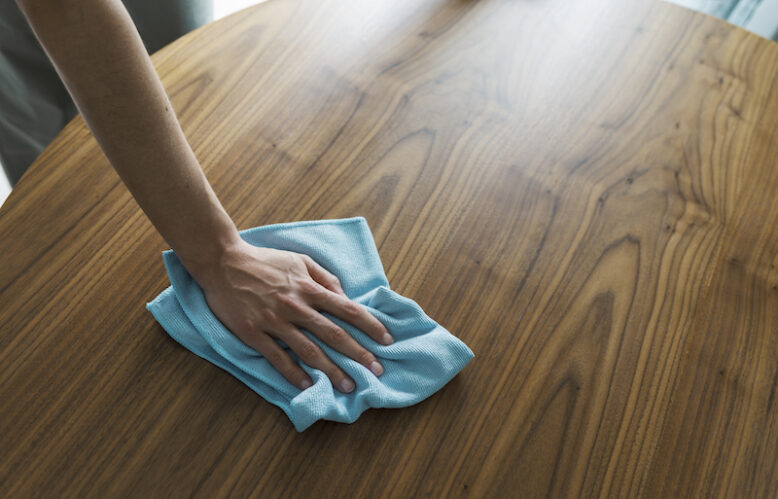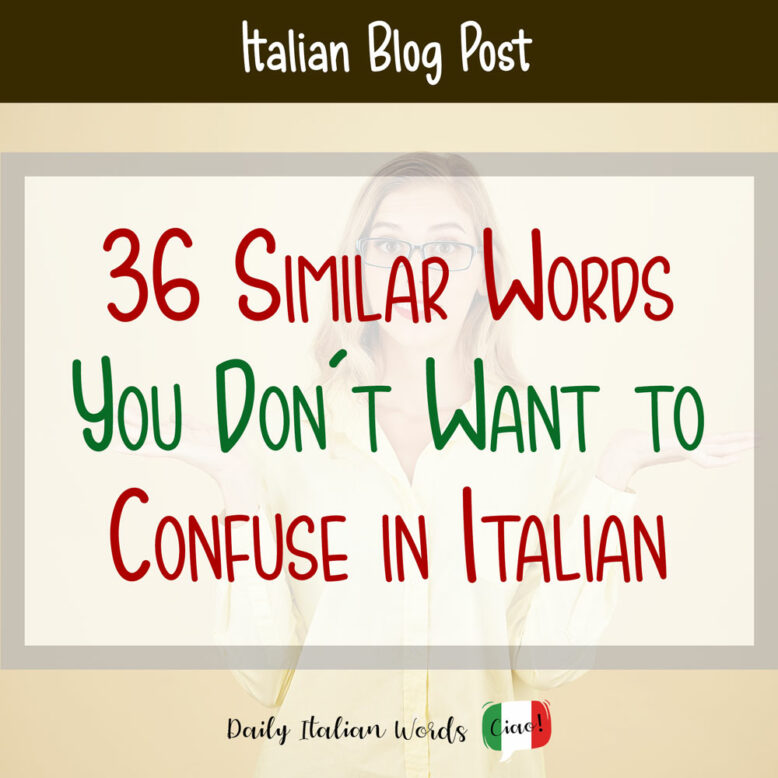Even though Italian and English share many similarities, there are plenty of words that trip up Italian students repeatedly – and not all of them are false friends!
One of the biggest headaches for learners is the double consonant, which is pronounced differently to a single consonant in that the sound is lengthened and more forceful. Unfortunately, since we don’t have double consonants in English, these words often sound identical to the untrained English ear.
Another stumbling block are words with an accent on the vowel. The letters that make up the two words may be the same, but the simple addition of an accented vowel can change the pronunciation altogether.
Finally, we have some words whose meaning is drastically altered by changing just one letter. Most of these are masculine/feminine pairs, where one ends in -o and the other in -a.
In this article, we’ve listed some of the most common word pairs that Italian students easily confuse, even at an advanced stage of learning! We hope you find them useful!

1. Pala vs Palla
Pala = Shovel / Blade
Palla = Ball
Ho usato la pala per tirare la palla.
I used the shovel to hit the ball.
2. Rosa vs Rossa
Rosa = Pink / Rose
Rossa = The feminine form of “rosso” meaning “red”
Sto meglio con la gonna rosa o con quella rossa?
Do I look better in the pink or red skirt?

3. Posto vs Posta
Posto = Place
Posta = Mail / Post office / Mail service
Lascia la posta in un posto ben visibile.
Leave the mail in a conspicuous place.
4. Casa vs Cassa
Cassa = Cash register / Trunk / Case
Casa = House / Home
Sei sicuro di voler tenere questa cassa in casa?
Are you sure you want to keep this trunk in the house?
5. Note vs Notte
Note = Notes / Memos / Musical notes
Notte = Night
Ho scritto due note al mio capo ieri notte.
I sent two memos to my boss last night.
6. Mostro vs Mostra
Mostro = Monster
Mostra = Exhibition / Display
Voglio mettere un mostro in mostra al museo!
I want to put a monster on display at the museum!

7. Papa vs Papà vs Pappa
Papa = Pope
Papà = Dad
Pappa = Childish term for food / baby food / mush
Mio papà e il papa stanno preparando la pappa insieme.
My dad and the pope are preparing the baby food together.
8. Caffè vs Café*
Caffè = Coffee
Café* = Coffee shop / Cafe
Andiamo a bere un caffè in quel nuovo internet café, quello all’angolo della strada.
Let’s have a coffee at that new internet coffee shop, the one on the street corner.
*Note: café is rarely used on its own. Usually it is associated with other words such as café society, web café or internet café.
9. Sete vs Sette
Sete = Thirst
Sette = Seven
Ho tanta sete. Portami sette bicchieri di birra, subito!
I’m very thirsty. Bring me seven glasses of beer, pronto!
10. Capelli vs Cappelli
Capelli = Hair (hairs collectively, as in a “head of hair”)
Cappelli = Hats
Indosso sempre i cappelli perché odio i miei capelli.
I always wear hats because I hate my hair.

11. Cane vs Canne
Cane = Dog
Canne = Reeds / Canes / Joints
Il cane abbaia a quei ragazzi che si stanno facendo le canne.
The dog barks at those guys who are smoking joints.
12. Banco vs Banca
Banco = Bench / Desk
Banca = Bank
Non c’era un singolo banco libero in banca.
There wasn’t a single free bench in the bank.
13. Panno vs Panna
Panno = Rag / Cloth
Panna = Cream
Devo pulire la panna che hai spalmato sul tavolo con il panno.
I have to wipe off the cream you smeared on the table with the cloth.

14. Tori vs Torri
Tori = Bulls
Torri = Towers
Tengono i tori nelle torri.
They keep the bulls in the towers.
15. Penne vs Pene
Penne = Pens / Feather / Penne pasta
Pene = Penis
Attento a non confondere la parola “penne” con “pene”!
Be careful not to confuse the word “penne” with “pene”!
16. Pesca vs Pesca
Pesca = Fishing
Pesca = Peach
Note: In standard Italian pronunciation, pesca (fishing) should have a closed E vowel, whereas pesca (peach) should have an open E vowel. However, not all Italians respect this distinction. Find out more about Italian vowels in this article!
Ti va di andare a pesca una volta che hai finito di mangiare la pesca?
Would you like to go fishing after you’ve eaten your peach?
17. Scoreggiare vs scoraggiare
Scoreggiare = To fart
Scoraggiare = To discourage / dissuade
Non so quante volte ho confuso i verbi “scoreggiare” e “scoraggiare”.
I don’t know how many times I have confused the verbs “fart” and “discourage”.
18. Ano vs Anno
Ano = Anus
Anno = Year
Una volta ho chiesto ad un amico “Quanti ani hai?” invece di “Quanti anni hai?” Che vergogna!
One time I asked a friend “How many anuses do you have?” instead of “How old are you?” How embarrassing!


Heather Broster is a graduate with honours in linguistics from the University of Western Ontario. She is an aspiring polyglot, proficient in English and Italian, as well as Japanese, Welsh, and French to varying degrees of fluency. Originally from Toronto, Heather has resided in various countries, notably Italy for a period of six years. Her primary focus lies in the fields of language acquisition, education, and bilingual instruction.


